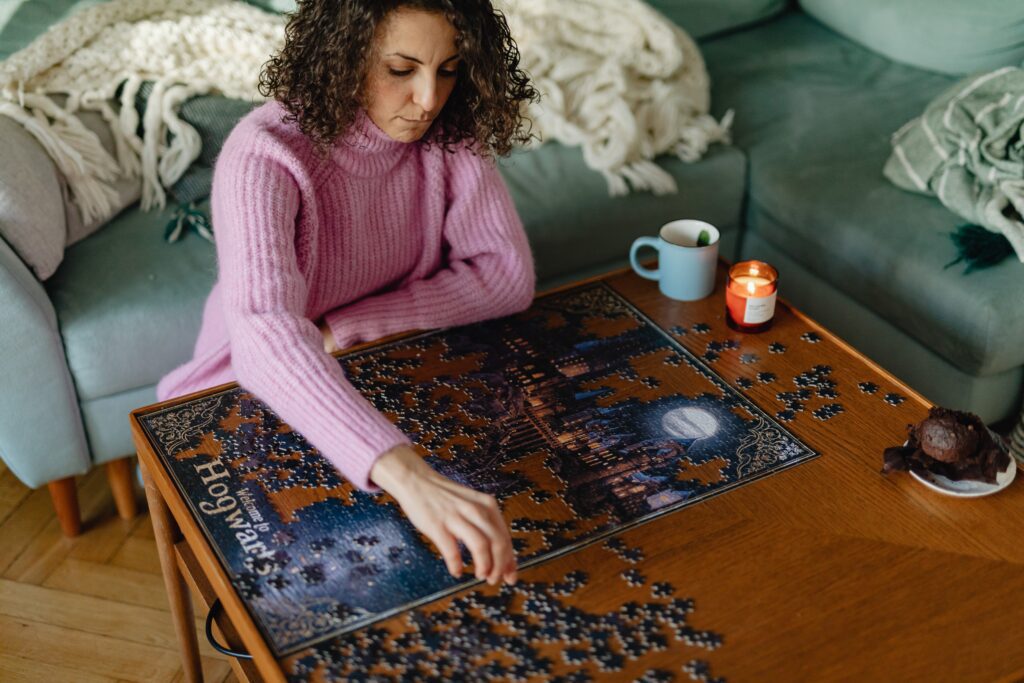Holistic Self-Care: A Comprehensive Approach to Mental Well-being
Taking care of your mental well-being is essential for leading a fulfilling and balanced life. Holistic self-care offers a comprehensive approach to nurturing your mental health by addressing various aspects of your being. In this article, we will explore the principles of holistic self-care and how incorporating practices for the mind, body and the soul can contribute to your overall mental well-being.
Understanding Holistic Self-Care
Holistic self-care recognizes that mental well-being is interconnected with other aspects of your life, including your physical health, emotions, relationships and spirituality. It emphasizes the importance of nurturing all these aspects to achieve balance and optimal mental well-being. By adopting a holistic approach, you can create a comprehensive self-care routine that supports your mental health.
Understanding holistic self-care is crucial for women with ADHD, bipolar disorder and/or rejection sensitive dysphoria (RSD) to support their overall well-being. Holistic self-care involves nurturing the mind, body and spirit, considering all aspects of one’s being. It starts with recognizing individual needs and prioritizing self-care practices that promote balance and healing. This may include engaging in activities that promote relaxation, such as meditation, yoga or deep breathing exercises, to reduce stress and promote emotional well-being. Nurturing the body through regular exercise, nutritious eating and adequate sleep is absolutely essential for physical and mental health.
Mindful practices, such as journaling or engaging in creative activities, can help process emotions and foster self-expression. Setting boundaries, practicing self-compassion and engaging in activities that bring joy and fulfillment are vital components of holistic self-care.
It is also important to seek professional support when needed, such as therapy or counseling, to address specific challenges. By embracing a holistic self-care approach, women can cultivate a foundation of well-being, resilience and self-empowerment to navigate their conditions with greater ease and balance.

Caring for Your Mind
Start by prioritizing practices that support your mental well-being. Engage in activities that stimulate your mind and promote cognitive health, such as reading, puzzles or learning new skills. Practice mindfulness and meditation to cultivate a calm and focused mind. Set healthy boundaries and manage stress effectively to prevent mental exhaustion. Incorporate activities that bring you joy and promote mental relaxation.
Caring for your mind is a crucial aspect of holistic well-being. It involves nurturing your mental health and cultivating practices that promote clarity, resilience and emotional balance. Engaging in activities such as mindfulness meditation, journaling or therapy can help develop self-awareness, manage stress and process emotions effectively. Setting realistic goals, practicing self-compassion and cultivating positive self-talk are essential for maintaining a healthy mindset.
Creating structure and organization in daily life, utilizing tools like planners or digital apps, can assist in managing symptoms and increasing focus. Prioritizing rest and relaxation, such as practicing deep breathing exercises or engaging in hobbies that bring joy, supports mental rejuvenation.
By nurturing your mind and prioritizing your mental well-being, you can enhance your overall quality of life and better navigate the challenges associated with these conditions.

Nurturing Your Body
Your physical health plays a crucial role in your mental well-being. Engage in regular exercise to release endorphins and boost mood. Prioritize nutritious whole foods that support brain health and provide essential nutrients. Ensure you get enough sleep to allow your mind and body to recharge. Practice relaxation techniques like deep breathing or yoga to reduce physical tension and promote a sense of calm.
Nurturing your body is a vital component of holistic well-being. Taking care of your physical health can have a positive impact on your mental and emotional well-being. Prioritizing regular exercise, such as yoga, walking or dancing, helps to reduce stress, improve mood, and increase energy levels. Engaging in activities that promote relaxation, such as taking warm baths, practicing deep breathing exercises or receiving massages, can alleviate tension and promote a sense of calm.
Eating a balanced, nutrient-rich diet with plenty of fresh fruits, vegetables, whole grains and lean proteins supports brain function and overall vitality. Adequate sleep is also essential, as it allows for rest and rejuvenation. Establishing a consistent sleep routine, creating a calming bedtime ritual, and ensuring a comfortable sleep environment can contribute to better sleep quality.
Additionally, staying hydrated and minimizing the consumption of stimulants like caffeine and alcohol can help regulate mood and energy levels. By nurturing your body through these holistic practices, you can support your overall well-being and empower yourself to manage the challenges associated with these conditions more effectively.

Managing Emotions
Emotional well-being is an integral part of holistic self-care. Develop emotional awareness and learn healthy ways to express and process your feelings. Engage in activities that promote emotional resilience, such as journaling, art therapy or talking to a trusted friend or therapist. Practice self-compassion and self-care during challenging times, recognizing that emotions are a natural part of the human experience.
Managing emotions is a crucial aspect of holistic well-being for women with ADHD, bipolar disorder and/or rejection sensitive dysphoria. These conditions can often lead to intense emotions and heightened sensitivity. Developing effective strategies to navigate and regulate emotions is essential.
Mindfulness practices, such as deep breathing exercises or meditation, can help create a sense of calm and bring awareness to the present moment. Engaging in creative outlets, such as art therapy or writing, allows for emotional expression and release.
Developing healthy coping mechanisms, such as engaging in physical activity, talking to a supportive friend or therapist or practicing self-care activities, can help process and manage overwhelming emotions.
It’s important to develop a toolbox of techniques that work for you personally and to be gentle with yourself during challenging times. By actively managing emotions, women can cultivate emotional resilience, promote a sense of balance and foster overall well-being.

Cultivating Meaningful Connections
Healthy relationships are vital for mental well-being. Nurture supportive and authentic connections with family, friends or a community. Engage in activities that foster connection and promote a sense of belonging. Practice effective communication and active listening to deepen your relationships. Surround yourself with positive and uplifting individuals who support your well-being.
Cultivating meaningful connections is essential to support holistic well-being. These conditions can often lead to feelings of isolation and a need for understanding and acceptance. Building strong, supportive relationships with others who can empathize and offer a safe space for sharing experiences is crucial. Seek out support groups, therapy sessions or online communities that focus on these specific conditions, as they can provide a sense of belonging and connection.
Engaging in activities and hobbies that align with personal interests can help forge connections with like-minded individuals. Cultivating open and honest communication within relationships and setting boundaries that prioritize emotional well-being can foster healthier connections.
It’s also important to nurture self-compassion and self-acceptance, as this can strengthen connections with oneself and enhance relationships with others. By actively cultivating meaningful connections, women can create a supportive network, share experiences, gain valuable insights and find solace in the understanding and empathy of others.

Spiritual Nourishment
Cultivate a sense of spirituality or connection to something greater than yourself. This can involve religious or spiritual practices, spending time in nature or engaging in activities that bring you a sense of peace and purpose. Reflect on your values and beliefs and align your actions with them. Incorporate mindfulness or meditation practices to connect with your inner self and cultivate a sense of inner peace.
Spiritual nourishment is a significant aspect of holistic well-being for women with ADHD, bipolar disorder and/or rejection sensitive dysphoria (RSD). Cultivating a sense of spirituality can provide a source of strength, comfort and purpose. This can be achieved through practices such as meditation, prayer or mindfulness, which help to connect with a higher power or inner wisdom. Engaging in activities that foster a sense of awe, such as spending time in nature, exploring creative pursuits or participating in rituals or ceremonies, can deepen the spiritual connection.
Reflecting on personal values, beliefs and the meaning of life can also contribute to spiritual growth. Additionally, seeking guidance from spiritual leaders, attending supportive religious or spiritual communities or reading inspiring literature can provide further nourishment for the spirit. By nurturing the spiritual aspect of their being, women can find solace, inner strength, and a deeper sense of purpose, supporting their overall well-being on a holistic level.

Creating a Self-Care Routine
Develop a personalized self-care routine that encompasses various aspects of holistic well-being. Assess your needs and interests and choose activities that align with your preferences. Create a schedule that allows for regular self-care practices, ensuring you prioritize your mental well-being. Be flexible and adapt your routine as needed to accommodate changes in your life.
A self-care routine allows for intentional and regular practices that nourish the mind, body and spirit. Begin by identifying activities that bring joy, relaxation and a sense of fulfillment. These may include engaging in hobbies, practicing mindfulness or meditation, spending time in nature or pursuing creative outlets.
Incorporate regular exercise, such as yoga or walking, to promote physical well-being and release endorphins. Prioritize sleep and establish a calming bedtime routine to ensure adequate rest. Nourish your body with a balanced diet that includes whole foods and hydrate properly. Engage in activities that promote emotional well-being, such as journaling or seeking therapy. Set boundaries and practice self-compassion, allowing yourself to prioritize self-care without guilt.
Remember that self-care is a personal journey and it is very important to listen to your own needs and adapt your routine accordingly. By creating a self-care routine, women can cultivate a foundation of well-being, resilience and self-empowerment to navigate their conditions with greater ease and balance.

Consistency and Balance
Consistency is key in holistic self-care. Make self-care practices a regular part of your life, even during busy periods. Strive for balance by allocating time and energy to all aspects of your well-being. Remember that self-care is not selfish but necessary for maintaining your mental health and overall happiness.
Creating consistency and balance is key for women with ADHD, bipolar disorder, and/or rejection sensitive dysphoria to support their holistic well-being. These conditions can often bring challenges in maintaining stability and managing emotions.
Establishing daily routines and schedules can provide a sense of structure and predictability, which can be grounding and reduce feelings of overwhelm. Prioritize self-care activities such as exercise, mindfulness and adequate rest to promote balance in physical and mental health.
Practice effective time management strategies, breaking tasks into smaller, manageable steps and setting realistic goals. Implementing strategies to manage stress, such as deep breathing exercises or engaging in hobbies that bring joy, can help maintain emotional equilibrium.
Setting boundaries and learning to say no when necessary is crucial in maintaining balance and preventing burnout. It is also essential to regularly evaluate and adjust routines as needed to accommodate changing needs and circumstances.
By cultivating consistency and balance, women can create a supportive framework for their well-being, enhancing their ability to navigate the challenges associated with these conditions more effectively.

Holistic self-care offers a comprehensive approach to nurturing your mental well-being. By caring for your mind, body, emotions, relationships and spirituality, you create a strong foundation for mental resilience and balance. Develop a personalized self-care strategy and thrive.
YOU MIGHT BE INTEREST IN
In the bustling world we live in, where stress and anxiety have become commonplace, it’s essential to find moments of tranquility to nourish our mental and emotional well-being. For women grappling with conditions such as ADHD, bipolar disorder and/or rejection sensitive dysphoria, the quest for inner peace can be particularly challenging.
However, amidst the chaos, there’s a timeless practice that offers solace: mindful breathing.
Disclaimer: The information and/or products mentioned in these article are provided as information resources only and are not to be used or relied on to diagnose, treat, cure or prevent any disease. The statements made in this article have not been evaluated by the Food and Drug Administration. Any products mentioned are not intended to diagnose, treat, cure, or prevent any disease, but rather to be considered as an informational resource only to encourage critical thinking and personal research. The information in this article is intended for educational purposes only. The information is not intended to replace medical advice offered by licensed medical physicians. Please consult your doctor or health care practitioner for any and all medical advice.
and don't forget to sign up for our weekly newsletter. it's free!

52 Weeks, 52 Topics! Get Our Latest ‘Stay Well’ Newsletter Every Monday And Start Your Week Off AllNaturWell. A New Tip, A New Study Revealed, A New Product Reviewed. Get It Right To Your Inbox Weekly. No Need To Wait. It’s Free!





